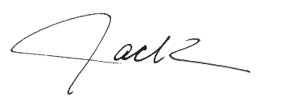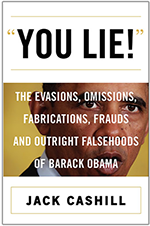The Truly Daffy Demonization
of the Brothers Koch
![]()
© Jack Cashill
Published in Ingramsonline.com - October 2014
As Wichita’s Koch family has learned the hard way, the surest way to make mortal enemies in contemporary America is to build a hugely successful business, stick to your principles, and care about the future of your country.
A bantam-weight among those enemies is The Kansas City Star. Not above the occasional rabbit punch, Star editors jabbed away with a recent story headlined, “Conservative Koch group launches TV ad attacking Orman in Kansas Senate race.”
Never mind that the Kochs are libertarians, not conservatives. What intrigues about the story is that hundreds of groups run ads every campaign season. To single out just one sponsor by name when that sponsor is running perfectly legal ads in its own state suggests something deeper than a bias. It suggests a disease, specifically KDS—Koch Derangement Syndrome.
Among those afflicted is self-styled environmentalist Robert F. Kennedy Jr. The day before The Star article—a coincidence?—he, too, singled out the Kochs, this time for questioning the agenda of that day’s million-madman climate march in New York. “They are enjoying making themselves billionaire by impoverishing the rest of us,” ranted Kennedy. “Do I think the Koch brothers should be tried for reckless endangerment? Absolutely.”
One can forgive this aging dilettante for failing to understand free enterprise. His buccaneer grandfather swindled his billions. But RFK 2.0 should understand the family history well enough to know that granddad bought the presidency for Uncle Jack. His wish to imprison a couple of honest billionaires for their above-board involvement in politics suggests that KDS, like syphilis, rots the brain.
A recent biography about the Koch dynasty, Daniel Schulman’s Sons of Wichita, makes some sense of the derangement. Schulman, who writes for the leftist Mother Jones, had to disappoint KDS sufferers with this surprisingly fair-minded book.
As Schulman suggests, Fred Koch, the founding father of the Koch empire, would have been appalled had his son turned out like Kennedy. Fred, writes Schulman, did not raise his sons to be “country club bums.”
The two Koch brothers who run the business, Charles and David, both went to MIT and earned masters’ degrees in chemical engineering. A lawyer by training, Kennedy fell into the environmental movement as part of his community service for a heroin bust. Just sayin’.
When Charles entered the family business, it was doing about $70 million a year. Today, Koch industries does about $115 billion and employs 60,000 people. Historically, the Kochs have plowed their profits back into the company. They run their company, says Schulman, as a meritocracy, de-emphasizing job titles and emphasizing the creation of value.
Unlike most companies demonized by the left—Goldman Sachs comes to mind—Koch Industries does real, gritty, sweaty, Kansas kind of stuff. They process and transport and trade in oil, coal, fertilizer, pulp, fibers, polymers, building products, paper, electronic components, pollution control equipment, and beef.
Until the 1990s, when they were targeted by the Clinton administration, the Kochs did not even have a lobbyist in Washington. Today, unlike most corporations, says Schulman, “Koch’s lobbyists don’t shift their positions based on the political headwinds.” The company sticks to the free market, Austrian Scho-
ol economic principles that the Kochs have espoused from the beginning.
Their philosophy often puts the Kochs, says Schulman, “well to the left of Republican Party orthodoxy.” In 1968, for instance, they ran a full-page ad
in The Wichita Eagle urging America to “get out of Vietnam now.” The brothers are soft on immigration, OK with gay marriage, and indifferent or hostile to most conservative social issues.
David, who lives in New York, gave $20 million to the Darwin-friendly Museum of Natural History in New York for the David H. Koch Hall of Human Origins. He also gave $65 million to the Metropolitan Museum of Art, $100 million to Lincoln Center, and $100 million to the New York Public Library.
But alas, KDS is the Ebola fever of social New York. In 2011, when David took to the stage to introduce a production of the Nutcracker at the Brooklyn Academy of Music, a production he chipped in $2.5 million to sponsor, someone muttered loud enough to be heard, “He’s an evil man.”
How did the Koch Brothers become evil? The answer is pretty simple: On April 15, 2009, more than 750 “tea parties” exploded across America and rocked Washington. To counter their effect, propagandists on the left searched for someone to blame other than the millions of ordinary Americans angry with their government.
The New York Times tried to oblige them by identifying likely puppeteers, but their early efforts failed to even mention the Koch brothers. In fact, there was no puppeteer. A 19 year-old coed at Park University organized Kansas City’s initial tea party. She expected about 250 people to show up. More than 4,000 did. This was the norm across America.
Like many political organizations, the innocuous Koch-funded group, Americans for Prosperity, tried to latch on the movement, but the AFP was a marginal player. “I’ve never been to a tea party
event,” David Koch told New York Magazine. “No one representing the tea party has ever even approached me.”
No matter. As the 2010 midterms rolled around, a desperate White House looked for a bogeyman and found not one, but two it in the Kochs. At a Texas fundraiser, President Obama keyed in on the funding source behind the AFP. “You don’t know if it’s a foreign-controlled corporation,” he said. “You don’t know if it’s a big oil company or a big bank.”
Obama knew, and his henchmen were not shy about fingering the villains in this perverse morality play. Chief strategist David Axelrod called the Kochs out by name, describing them as “billionaire oilmen secretly underwriting what the public has been told is a grass-roots movement.”
Before Axelrod and his cronies were through, they turned the Kochs into what Schulman describes as “a crude caricature of corporate fat cats subverting democracy and science as they secretly advanced their plutocratic agenda.” As the 2012 election approached, writes Schulman, “It was as if President Obama were running against the Koch brothers.”
“I’m not sure it would ever cross Charles’ mind,” a Koch friend observed, “that a sitting president would single him out.” The White House, however, picked the wrong target for its abuse of power: Despite the protests, the slander, the many death threats, the Kochs fight on. “They thought we would back down,” said Charles. “They thought wrong.”




